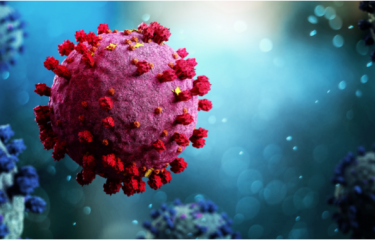To this day, SARS-CoV2, the virus responsible for COVID-19 pandemic, has been identified in more than 180 countries. It unfolded a once-in-a-century public health crisis, through his extensive impact on global economy directly caused by confinement measures. To confront these challenges, the 32 member institutes of the Institut Pasteur International Network (IPIN) are swinging into action. Healthcare workers and scientists are unifying their efforts and resources to study the novel virus and his consequences on humanity in order to better diagnose it and develop treatments or vaccines.
In France, as soon as January, Institut Pasteur set up a Coronavirus Task Force to coordinate and oversee Pasteur teams’ research efforts. At this stage, 16 projects have already started and there are more to come (See the current state of research work undertaken).
As the IPIN Pasteur institutes are also eligible for the Task Force call for projects, 19 projects involving teams from 20 institutes of the network have been selected. These projects cover many areas of research such as clinical and epidemiological investigations, the development of diagnostic tools, anti-viral research, immuno-vaccination and the exploration of animal reservoirs and species jumps. All of these studies are carried out in the IPIN Institutes on five continents.
The countries of Southeast Asia, due to their geographic proximity to the initial focus of the epidemic, quickly deployed operational support to health authorities of their respective country.
Thus, the Institut Pasteur of Cambodia is playing a role in tracing contacts of infected people. The Cambodian teams restructured to be able to carry out up to 300 diagnostic tests per day. They assess the risk of transmission of SARS COV-2 on wet markets of the Mekong Delta region, in particular in those involving endangered species. This project was selected for funding by the Reacting consortium.
On the other hand, the National Institute of Hygiene and Epidemiology of Vietnam and the Institut Pasteur du Laos are actively researching the origin and transmission of SARS COV-2. The project aims to detect previous coronavirus infections that went unnoticed, in humans and animals exposed to the virus.
The Institut Pasteur Korea, thanks to its high-end technological platform, confirmed the therapeutic effectiveness of a corticosteroid, a drug used to treat asthma, as well as a parasiticide, in cells infected with coronaviruses, including SARS COV-2.
Africa, due to its limited resources, could be hit by a heavy sanitary, social and economic toll. On the continent, testing capabilities will be of crucial importance to allow countries to follow the CDC guideline “Test, Test, Test”. Rapid, easy-to-perform and affordable tests are a priority. The Institut Pasteur de Dakar (IPD), in collaboration with the British biotechnology company Mologic and the IRD (French National Research Institute for Sustainable Development), is working towards the development of one of these fast, inexpensive diagnostic tests for COVID-19, with a local production objective in mind.
The Institut Pasteur de Tunis is working, within the framework of a technological partnership with the Hong Kong University-Pasteur Research Pole and the Institut Pasteur in Paris, on an Elisa serological test, that will detect SARS COV-2 antibodies. This test relies on targeting two viral antigens: the entire N protein or the extracellular domain of the spicle S of the virus. The recombinant proteins produced will be made available to all IPIN institutes. This test will facilitate the large sero-epidemiological studies needed to understand how the virus spread over time and geographically. The French Ministry for foreign affairs recently awarded a €2 million grant to the Institut Pasteur and 10 members of its network located in Africa, for research purposes in order to shed light on Africa pandemic characteristics and inform preventive measures adapted to regional environments.
In the face of an emergent disease, training is crucial. The Institut Pasteur de Dakar (IPD) has been commissioned by the African Center for Disease Prevention and Control (African CDC) to locally teach laboratory staff on how to recognize SARS COV-2. For this purpose, the IPD received laboratories representatives from fifteen African countries at the end of February.
This strategy of education is reinforcing each country ability to manage COVID-19 epidemic. These various initiatives of knowledge transmission and logistical support also benefits from the support of programs set up before the epidemic such as "ASIDE" (DHHS), dedicated to surveillance and preparation for infectious emergencies, or "MEDILABSECURE" (EU- DEVCO), dedicated to the networking of multidisciplinary public institutions from 22 countries around the Mediterranean Sea, the Black Sea and the Sahel. DG-DEVCO has also approved funding for the online training of the medical workforce.
All in all, the collaboration between IPIN institutes and their collective expertise could make a difference in the fight against the pandemic, especially in developing countries and for populations in precarious situations.
Three projects to fight against COVID-19 epidemic
|





